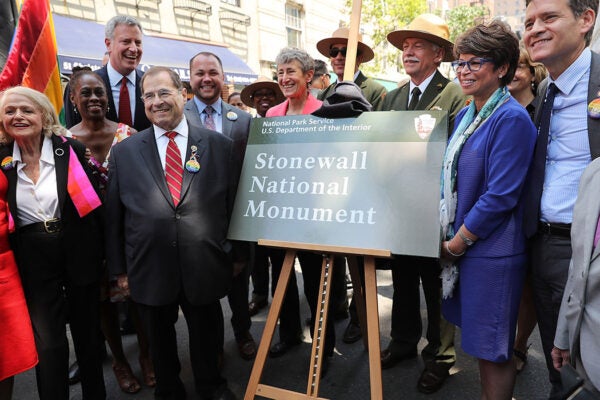Queer Representation in Pre-Code Hollywood
Before the establishment of the Hollywood Production Code in the 1930s, filmmakers deployed gender and sexuality stereotypes for glamour, humor, and drama alike.
Stonewall National Monument Declaration: Annotated
In June 2016, President Obama proclaimed the first LGBTQ+ national monument in the United States at the site of the 1969 Stonewall Uprising in New York City.
LGBTQIA+ Pride Month
June is LGBTQ Pride Month, so JSTOR Daily gathered some of our favorite stories to celebrate. All with free and accessible scholarly research.
Lesbians and the Lavender Scare
Lesbian relationships among government workers were seen as a threat to national security in the 1950s. But what constituted a lesbian relationship was an open question.
Is There an LGBTQ+ Canon?
An English professor considers the questions raised about selecting queer works for study and discussion when planning a course on LGBTQ+ literature.
“Let it Go” and “Defying Gravity”: Queer Anthems in Lockstep
The leading songs from Wicked and Frozen emphasize the importance of self-determination and being true to oneself.
How Minnesota Became a Queer Hmong Mecca
Despite policies meant to scatter immigrants from the same ethnic group across the United States, the Twin Cities area became a refuge for LGBTQ Hmongs.
Reading for LGBTQ+ History Month
October is LGBTQ+ History Month, so the JSTOR Daily editors have rounded up a few of our favorite stories to mark the occasion.
“Protecting Kids” from Gay Marriage
Leading up to a 2004 debate about same-sex marriage, conservatives shifted their focus away from moral issues and toward arguments about children’s welfare.
Defining and Redefining Intersex
The transatlantic circulation of ideas between Baltimore and Zurich consolidated and standardized treatments of intersex infants in the 1950s.









